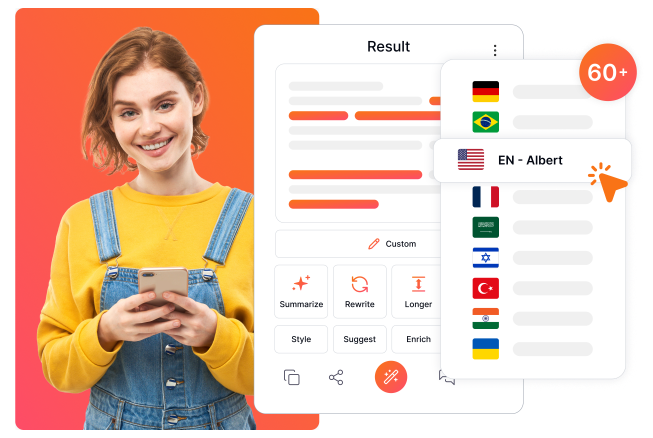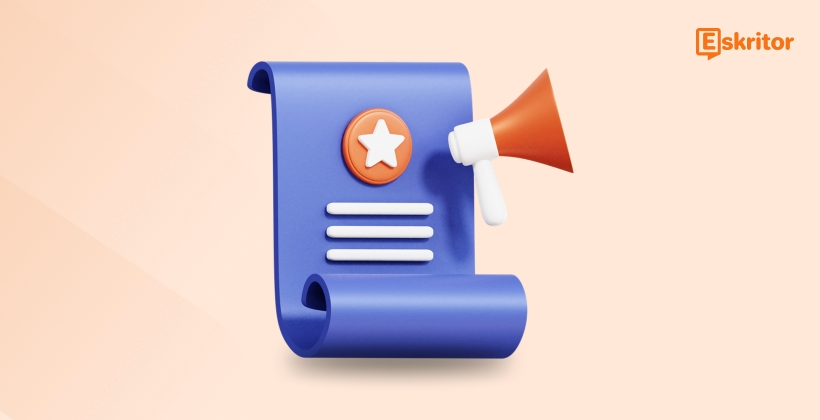The Role of AI in Modern Editing Practices
The Role of AI in Modern Editing Practices
Blog Article
Why AI Editing is Revolutionizing Proofreading
Synthetic intelligence (AI) writing engineering has evolved fast in the last decade, reshaping the way in which we produce and connect to written content. From grammar modification methods to AI-generated books, the options appear limitless. But where exactly is this engineering going? Let's investigate the improvements, challenges, and potential potential of AI writer.

How AI Writing Engineering Operates Today
At its core, AI writing engineering utilizes Normal Language Running (NLP) and equipment learning. These systems enable designs to know, make, and increase human language. Methods accessible today do well at tasks like:
1. Material Generation
AI has achieved a point wherever it can make total website posts, social networking sayings, and also information articles. Some types can handle mimicking human writing designs so efficiently that unique between AI- and human-written material is becoming increasingly difficult.
2. Syntax and Model Suggestion
AI-powered publishing personnel don't just check for syntax and spelling errors; additionally they give recommendations to enhance tone, understanding, and syntax, making complex publishing available to an extensive audience.
3. Feeling Analysis
AI can examine the mental tone of a piece, allowing businesses to evaluate how their communications can resonate with readers. This really is particularly of good use in marketing and client interaction.
The Current Trends in AI Publishing Engineering
Several styles are surrounding the following phase of AI-powered writing instruments:
• Personalization
AI writing engineering is significantly effective at tailoring content to individual preferences. Designs can conform to a user's publishing style, ensuring the productivity thinks authentic.
• Multilingual Features
Several AI tools are increasing their global reach by offering increased interpretation functions and help for multiple languages.
• Enhanced Study Features
AI tools now possess the capability to analyze great amounts of data and present fact-checked, well-researched publishing in seconds, simplifying the procedure for specialists in industries like law, money, and journalism.
What the Potential Holds for AI Publishing Technology
1. Increased Creativity
While current AI is adept at generating material, its imagination is still restricted to habits within their teaching data. Future AI is not only estimated to assist but to produce unique, insightful works that challenge human imagination.
2. Smooth Collaboration
Envision an AI that works along with you in real-time, performing your sentences, performing stay edits, and also brainstorming ideas. AI publishing tools may possibly soon become co-authors, permitting imagination to movement uninterrupted.
3. Ethical and Accessible Style
With growing issue about plagiarism, misinformation, and prejudice, developers are working toward more transparent AI teaching techniques and moral implementation. Potential instruments will more than likely offer more detailed details and procedures to make sure accountability.
Difficulties and Factors
The progress of AI writing engineering isn't without hurdles, including:
• Honest Issues

Who owns content developed by AI? How can we guarantee AI-generated material is not scattering misinformation? These debates stay unresolved.
• Human-AI Stability
May AI complement human creativity or totally replace particular tasks? Several authors and musicians be worried about their relevance within an AI-driven world.
• Convenience Split
Not totally all businesses or parts have equal use of cutting-edge AI methods, increasing questions about the affect of the engineering on global inequality.
Changing the Way We Write
AI writing technology remains in their infancy in comparison to its potential. Whether you're a student crafting essays, a material marketer targeting unique audiences, or even a author seeking motivation, AI instruments can continue steadily to revolutionize the writing process. The next decade promises breakthroughs that mix human ingenuity with device intelligence, making a future wherever publishing is more effective, accessible, and impactful than actually before.
Report this page